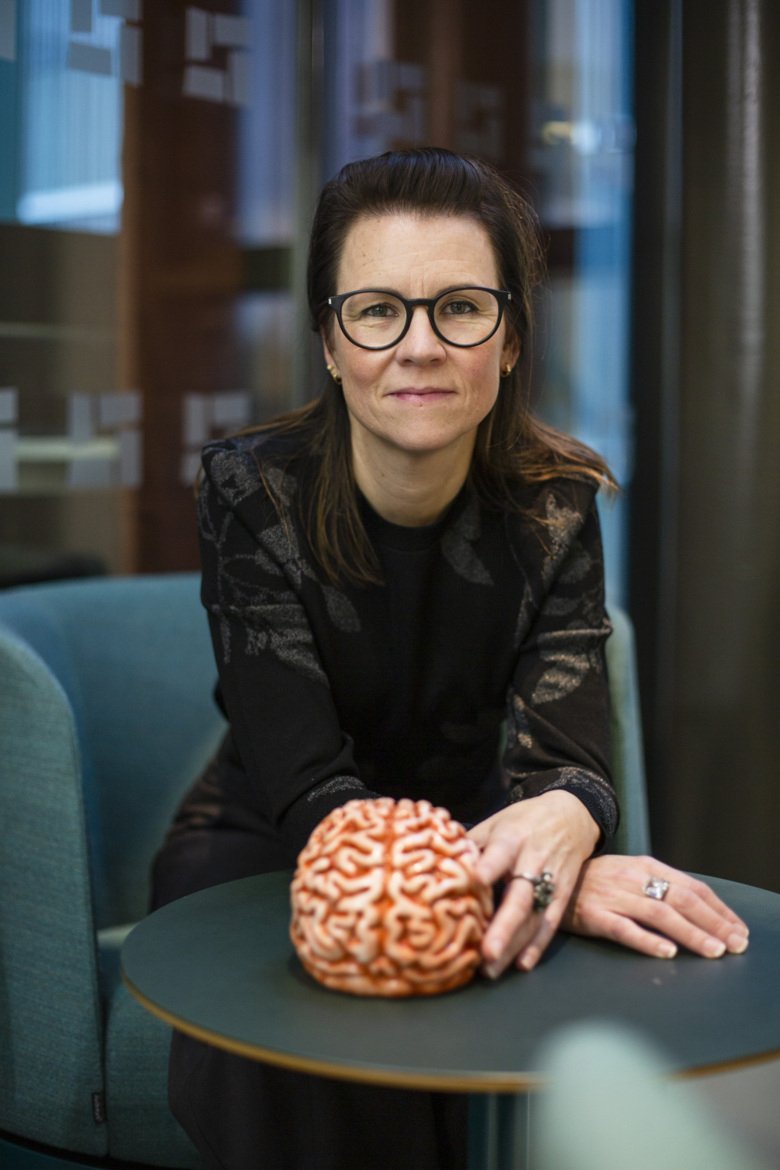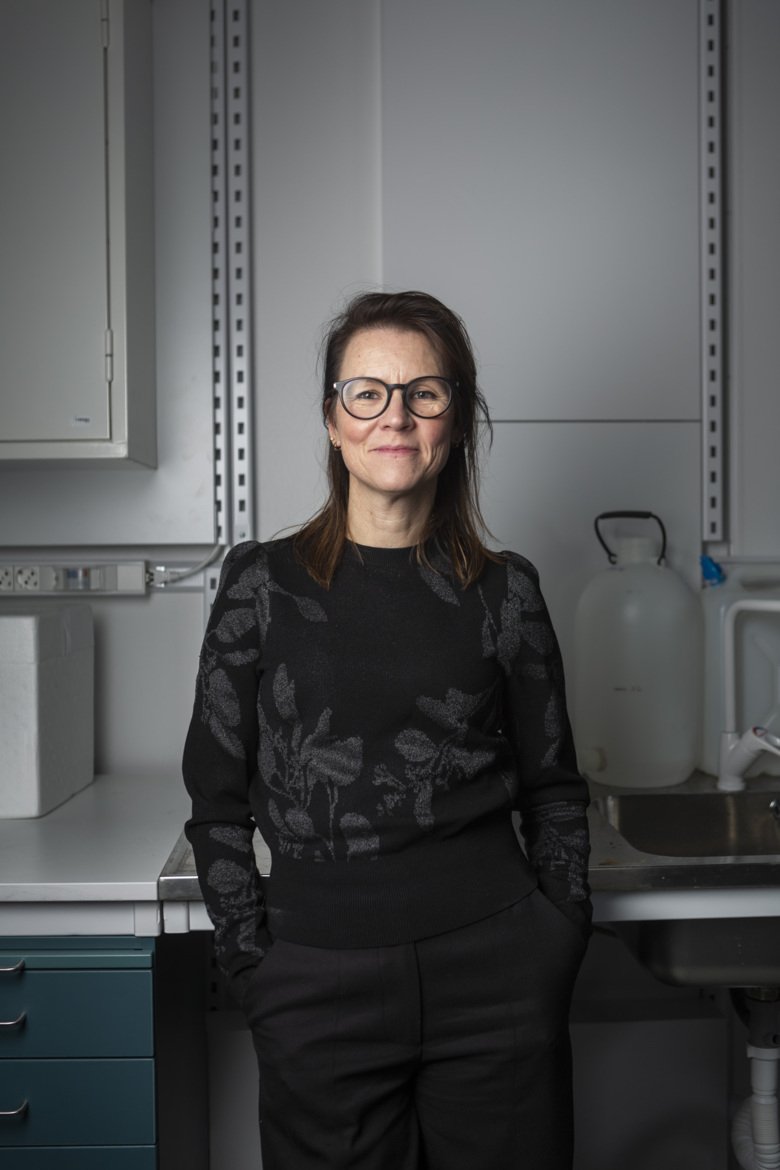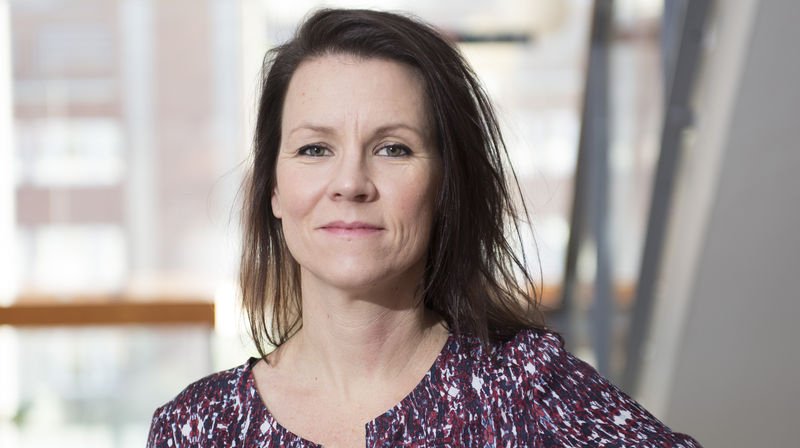Marie Carlén: She wants to decode the brain
Sherlock Holmes was an idol when she was a child and her mother suggested the research profession early on. But it was not a straight path to science for Marie Carlén. Today she leads advanced studies on the part of the brain that shapes us as individuals: the prefrontal cortex.

Empathy, decision-making ability, social skills, attention. Yes, our entire personality is collected in the prefrontal cortex, the forward part of the frontal lobe of the brain.
"Humans have the largest prefrontal cortex of all animals. And we also have many abilities that other animals do not have," says Marie Carlén.
Her research is about understanding these functions at a basic level in order to understand and treat psychiatric diseases. Knowledge is elusive, she says.
"It is clear that this part of the brain is necessary for higher mental functions. All psychiatric diseases and also drug dependence have a connection to the prefrontal cortex. But what makes this part of the brain unique? If we can understand it better, we can also understand abnormalities better," says Marie Carlén.
And it ensures better opportunities to be able to treat diseases that affect the brain.
"An important explanation for the failure of many treatments for psychiatric conditions is that we don't know enough about what is causing them," she says.
Using new techniques, researchers can insert electrodes into the brains of mice and record activity in up to 1,000 neurons simultaneously in real time. They can record activity patterns from different parts of the brain and see how different parts of the brain communicate with each other. With the aid of the technique optogenetics, they can also turn neurons on and off using light. In this way, they can study what happens if certain activity in the brain is inhibited and find out which neurons are involved in specific processes in the brain.
"We try to identify and separate activity patterns and understand what they stand for. We also try to understand how different networks of neurons in the brain are connected to each other. But we don't really know exactly what we're looking for. This is basic research and the goal is to make discoveries about how the brain is structured and functions," says Marie Carlén.
It all sounds pretty abstract. She gives a concrete example.
"We know that prefrontal cortex is important for attention. We had a hypothesis about which cells were crucial in maintaining attention; they are called parvalbumin-expressing neurons, PV cells. We were able to show in 2016 that when someone is attentive, these cells in the prefrontal cortex are very active, and they regulate what information is passed on from the prefrontal cortex. And attention fails when they are not working as they should," explains Marie Carlén.

Seeking basic knowledge
Problems with attention are common in neuropsychiatric disabilities and mental diseases, and all basic knowledge is important for finding new treatments, she believes. In a new project, which she is running together with her partner Konstantinos Meletis, who also a researcher at the Department of Neuroscience at Karolinska Institutet, they want to try to understand more about the brain in autism.
"The basic question is how the brain works in decision-making. What does activity in the prefrontal cortex look like when the mouse makes a decision? There are genetically modified mice that suffer from autism-like conditions. By comparing activity patterns in the brains of these mice with those in healthy mice, we hope to understand more about both the basic biology but also how abnormalities in the function of the prefrontal cortex affect decision making. Autism is a complex condition, but hopefully these studies can contribute to the understanding of the basis of certain typical symptoms," she says.
Inserting electrodes or turning on and off activity in the brain with the aim of making basic discoveries is not an experiment that we can or should do with people.
“These experiments must be carried out on animals.”
A long-running controversy in the field of research is whether experiments on laboratory animals can provide knowledge about psychiatric diseases.
"Some people believe that when it comes to brain function the differences are too great . And certainly people have abilities that animals do not have and this suggests, for example, a more advanced prefrontal cortex. But I and many others believe that there are also mental functions that are universal and that by understanding these we can gain valuable knowledge that applies to all brains. I think there are basic principles for how the prefrontal cortex works. If we can understand these in any species, this is a huge step forward," she says.
But experimenting on animals is not something Marie Carlén takes lightly.
"We talk a great deal about the ethical aspects of the lab and we are very careful to follow the rules. It is also absolutely crucial for our experiments that the animals feel physically and mentally well. I believe that the research questions need to be answered, and if my contribution can increase the chances of this, I must contribute," she says.
Marie Carlén herself has been a vegetarian since the 1990s.
"It was on a New Year's Eve that I made the final decision. I said, 'This is my last meat meal.' In the modern society that I am a part of, we don't have to eat meat. It may be good and practical but it is not ethically justifiable, in my opinion.”
This attitude has met with far more resistance than the laboratory animals issue, she believes.
"I never address the question of what people eat or don’t eat, it is still too sensitive in today's society. I'm not judging anyone. But not eating meat is a provocation for some people, they take it as an indirect criticism of their own food choices. I have also been accused of being inconsistent when I perform animal experiments but do not eat animals, as if it would be better to both do animal experiments and eat meat. But I can justify both of these positions for myself," says Marie Carlén.
Hard work must be rewarding
It was far from a foregone conclusion that Marie Carlén would become a researcher. After graduating, she first began to train as a doctor. But pretty soon she dropped out.
"I got up and walked out during an exam and never came back again.
For the next few years she worked in various jobs as a cleaner, seamstress and nursing assistant in an old people's home. Fried hamburgers at McDonald's.
"I'm grateful for those years when I had time to think a lot about what I wanted to do. Your working life is so long, it must be worth going to work every day. I wanted development opportunities both in terms of my duties and my salary, a job where hard work is rewarding and pays off," she says.
It was during biology studies at Stockholm University that she first heard about research.
"No one in my family is an academic so I didn't know about the profession. But my mother often said when I was a kid that I should be a researcher. At the time I didn't understand why, because I had no idea what it was," says Marie Carlén.
The degree project happened to be with Professor Jonas Frisén at Karolinska Institutet and since that day she has been hooked.
"My job gives me endless opportunities, every day brings development. And it's really cool that anyone can do this. In Sweden, anyone can be educated as a researcher and get to hang out with really smart people all day; you don't have to have a special background," she says.
But it also involves a great deal of responsibility and a lot of hard work.
"The harder you work, the more likely you are to have the luck you need to succeed. In order to be able to work so hard and put many other interests aside, it has been extremely important for me to feel that what drives me is my own interest and the will to understand. My best advice to young people thinking about a research career is to find their own research interests and goals. Don't let others control you," says Marie Carlén.
About Marie Carlén
Name: Marie Carlén
Title: Associate Professor at the Department of Neuroscience, Karolinska Institutet.
Age: 50.
Family: Partner Konstantinos Meletis (also a researcher at Karolinska Institutet) + twin daughters.
Motto: Work hard, play hard. In the lab we work hard but we are also good at celebrating big and small successes.
How I relax: I use my brain but in a different way, preferably culture in some form. The combination of crime and psychology interests me a great deal.
Inspired by: As a child, I was a little obsessed with Sherlock Holmes; I liked the way he solved problems in a scientific way.
Best attributes as a researcher: Tireless.
Marie Carlén on…
... doubting her research:
When I was young, I could doubt that I was asking the right questions. Once I started my own group, it came naturally. I have been strengthened by seeing that we can both formulate and answer important research questions.
... gender equality in research:
We need to get more women to stay in academia after their doctorates. A more even gender balance is about fairness and would have a positive impact on how things are conducted.
... working with her partner:
We met at the lab and have lived and worked together for 17 years. It's fantastic to be able to share scientific life with someone, it adds an extra dimension, as well as a lot of support.
... being open:
You can't wish for what biology is like. We put up hypotheses about how it works, but you cannot be disappointed because it is not what you think. Nature is what nature is; my job and goal is to clarify.
Text: Cecilia Odlind, first published in Swedish in Medicinsk Vetenskap, No 4/2020.
Links
 Photo: Stefan Zimmerman
Photo: Stefan Zimmerman"Funding from KAW gave the freedom to focus on complex research projects"
Meet KI researcher Marie Carlén, one of the speakers at the KAW jubilee symposium in Stockholm.
